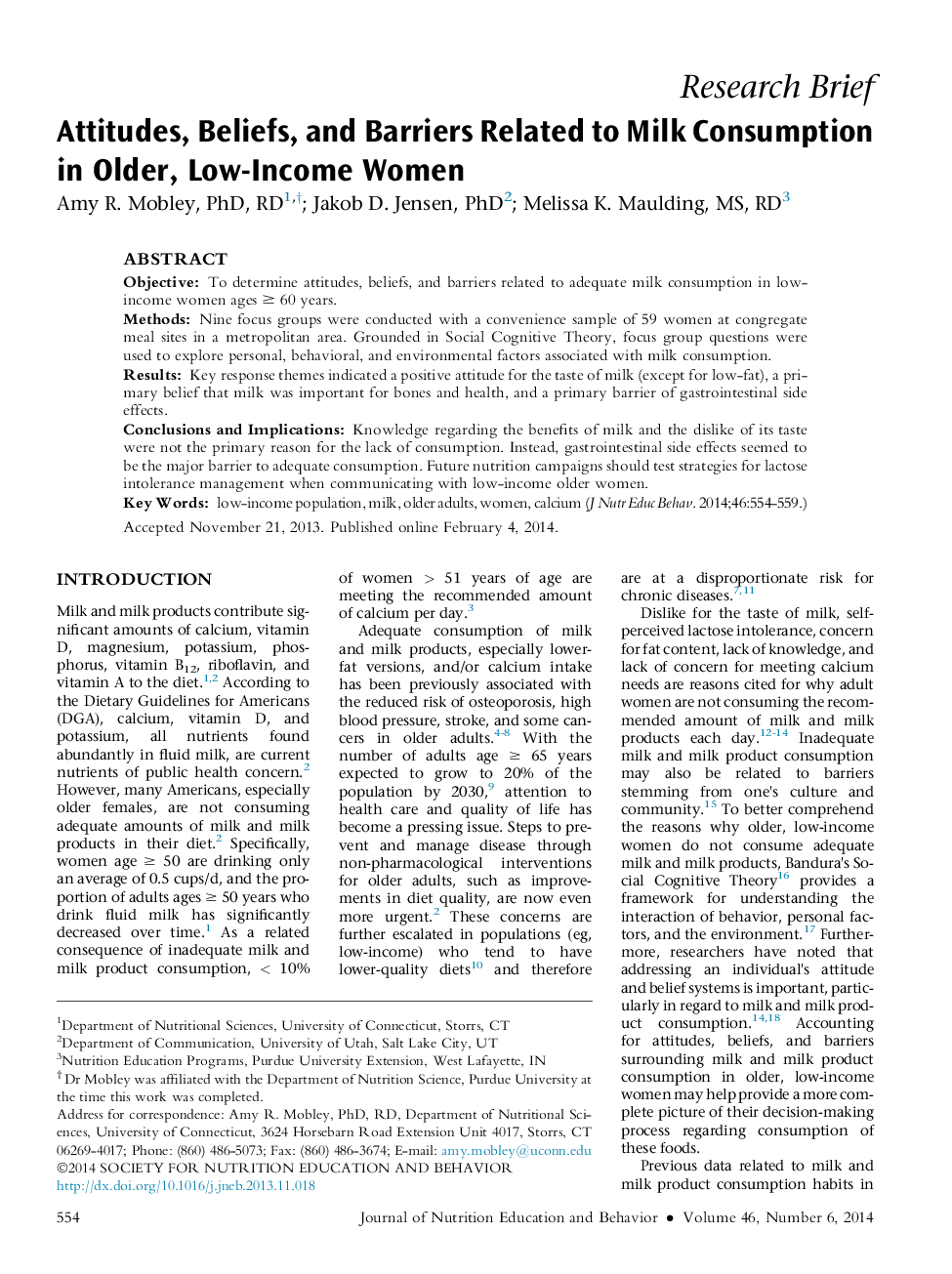| Article ID | Journal | Published Year | Pages | File Type |
|---|---|---|---|---|
| 361172 | Journal of Nutrition Education and Behavior | 2014 | 6 Pages |
ObjectiveTo determine attitudes, beliefs, and barriers related to adequate milk consumption in low-income women ages ≥ 60 years.MethodsNine focus groups were conducted with a convenience sample of 59 women at congregate meal sites in a metropolitan area. Grounded in Social Cognitive Theory, focus group questions were used to explore personal, behavioral, and environmental factors associated with milk consumption.ResultsKey response themes indicated a positive attitude for the taste of milk (except for low-fat), a primary belief that milk was important for bones and health, and a primary barrier of gastrointestinal side effects.Conclusions and ImplicationsKnowledge regarding the benefits of milk and the dislike of its taste were not the primary reason for the lack of consumption. Instead, gastrointestinal side effects seemed to be the major barrier to adequate consumption. Future nutrition campaigns should test strategies for lactose intolerance management when communicating with low-income older women.
